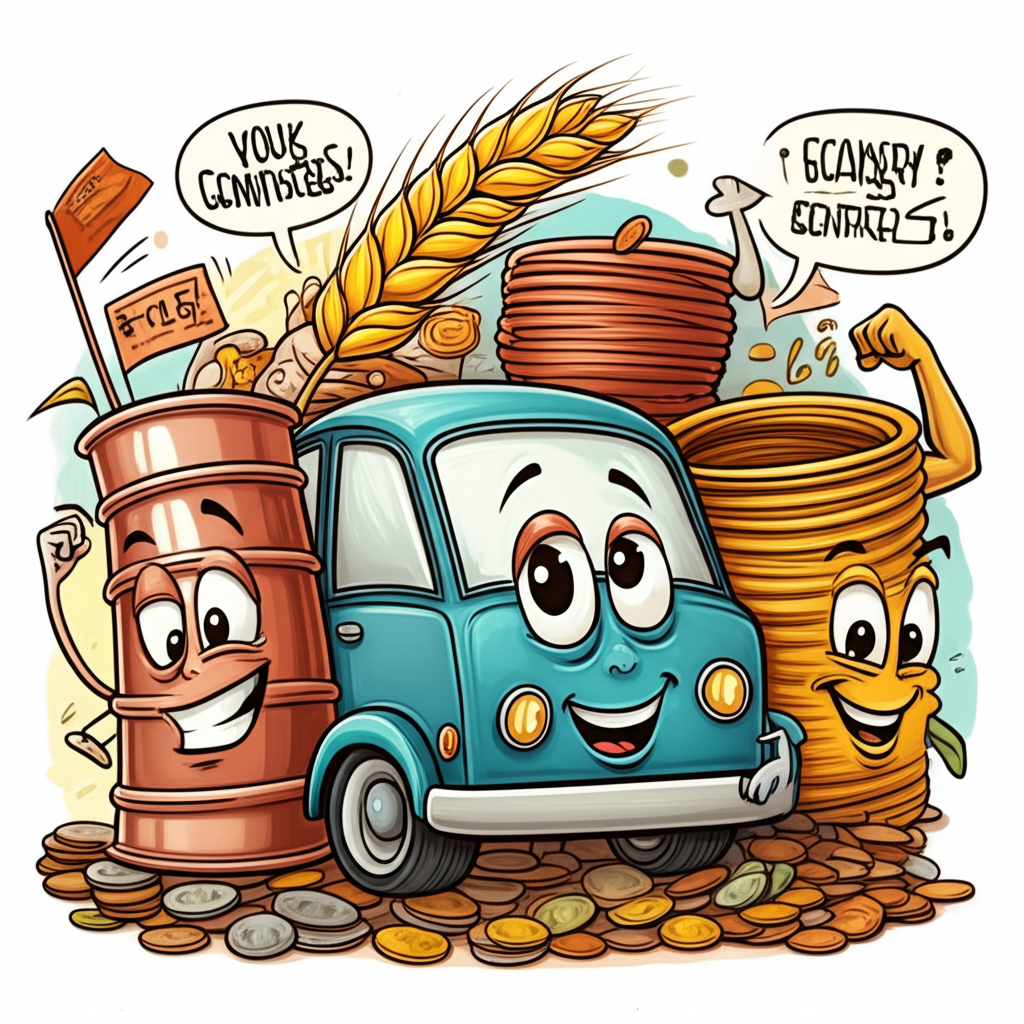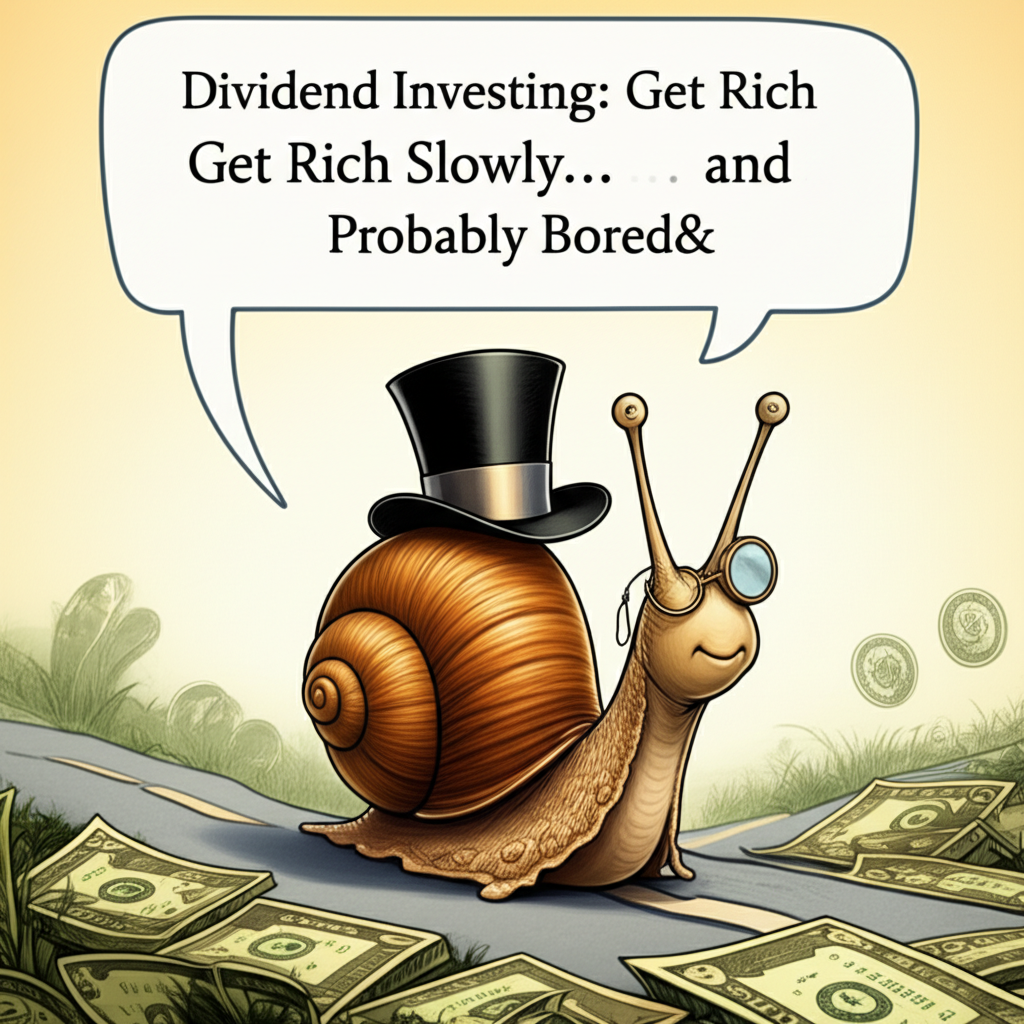
Article 1: The Secret Lives of Commodities: A Tell-All Exposé
By Sterling Volatility, Senior Market Anthropologist (and amateur psychic)
Geneva, Switzerland – Behind every morning coffee, every gallon of gas, and every humble loaf of bread lies a simmering cauldron of drama, ego, and existential dread. We’re not talking about your morning commute; we’re talking about the commodities themselves. Yes, those essential raw materials that dictate global economics are, in fact, a bunch of highly neurotic, attention-seeking divas with more baggage than a supertanker full of crude.
For years, market analysts have prattled on about "supply and demand," "geopolitical tensions," and "weather patterns." But what they fail to mention is the intricate, often petty, social dynamics at play in the bustling backstage of the global economy. I’ve spent months embedded in the clandestine world of commodity exchange floors (mostly disguised as a very convincing potted plant), and what I’ve discovered will shock you.
Meet the Cast of Characters:
-
Crude Oil (aka "Black Gold"): The undisputed alpha, but perpetually moody. One day, he’s soaring, feeling like the king of the world, fueled by whispers of Middle Eastern instability or a particularly robust SUV sales report. The next, he’s slumped in a corner, weeping about electric vehicles and a slight uptick in global inventories. His therapist reports he has "severe abandonment issues" stemming from the early 20th century’s coal-fired dominance. He’s also deeply competitive with natural gas, whom he refers to as "that gassy upstart."
-
Gold (aka "Shiny Safe Haven"): The perennial worrier. Gold spends most of its time pacing nervously, clutching its pearls (which are, ironically, also commodities). Any mention of inflation, interest rate hikes, or a strong jobs report sends it into a full-blown panic attack, convinced everyone is about to abandon it for the stock market. It’s also deeply insecure about its lack of practical applications beyond jewelry and dental fillings. "I just want to be loved for more than my perceived stability during a crisis!" it once wailed in my presence.
-
Coffee (aka "The Jittery Socialite"): A high-maintenance diva with a serious caffeine addiction. Coffee’s mood swings are legendary, often dictated by a single, errant frost in Brazil or a particularly aggressive leaf rust outbreak. It thrives on human dependency, basking in the morning rush and the afternoon slump. Lately, it’s been getting into heated arguments with Tea over who truly rules the morning beverage market. "Tea is just hot leaf water!" Coffee sniffed during a recent market downturn.
-
Wheat (aka "The Humble Staple"): The quiet, unassuming backbone of the global diet, often overlooked but absolutely essential. Wheat rarely makes headlines unless there’s a catastrophic drought or a geopolitical blockade. It’s often the victim of speculative bullying by hedge funds who "don’t understand its quiet dignity." Wheat just wants to be harvested, milled, and baked into something delicious, but it constantly battles the existential dread of being turned into ethanol.
-
Copper (aka "Dr. Copper, the Economic Prognosticator"): A serious, no-nonsense type, often seen with a tiny, metaphorical briefcase. Copper fancies itself an oracle, believing its price movements predict the future health of the global economy. If Copper’s up, factories are humming. If it’s down, everyone’s bracing for a recession. It’s often exasperated by the frivolous behavior of its peers. "Honestly, Crude, if you’d just get your act together, we could all be so much more productive!" it was overheard muttering during a recent market dip.
The Drama Behind the Numbers:
These personalities clash, conspire, and occasionally coalesce, sending ripples through your grocery bill and gas tank. A particularly robust harvest of soybeans might send the entire "Softs" group (Coffee, Sugar, Cotton) into a fit of envy, convinced they’re being upstaged. A new trade agreement could see Iron Ore and Coal bickering over who gets more demand from the steel industry.
So, the next time you hear about commodity prices, remember: it’s not just about charts and graphs. It’s about Crude Oil having a bad hair day, Gold suffering from an anxiety attack, and Coffee throwing a tantrum because of a slight drizzle in Colombia. And these dramatic little particles are pulling all the strings. You’re welcome for this valuable market insight. Now, if you’ll excuse me, Gold just called, convinced the sky is falling again.
Article 2: Futures Contracts: Or, How I Learned to Stop Worrying and Love the Hypothetical Soybean
By "The Oracle" O’Malley, Futures Broker (and part-time palm reader)
Chicago, IL – Ah, futures contracts. The very words conjure images of sophisticated traders in bespoke suits, barking orders into multiple phones, their eyes gleaming with the wisdom of tomorrow. In reality, it’s mostly people in ill-fitting polos staring intensely at screens, trying to predict whether a pig will be more expensive in six months than it is today. And then, placing a bet on it.
Welcome to the wonderful, bewildering world of futures, where you buy or sell something you don’t own, won’t ever see, and probably couldn’t even identify in a police lineup.
The Premise: A Very Expensive Crystal Ball
At its core, a futures contract is an agreement to buy or sell a specific commodity at a predetermined price on a future date. Sounds simple, right? It’s not. It’s less a formal agreement and more a global, high-stakes game of "What If?" played by millions.
Imagine you’re a farmer. You’ve got a field full of beautiful, verdant soybeans. You hope they’ll be worth a lot when you harvest them in October. But what if everyone else also has beautiful, verdant soybeans? Suddenly, your bounty is everyone’s burden, and prices plummet. This is where the magic (or madness) of futures comes in. You can "lock in" a price today for your future harvest, effectively selling your theoretical beans before they even exist. This is called "hedging," and it’s about as exciting as watching paint dry.
The Thrill of the "Speculators": The Psychics of the Pits
But then there are the speculators. Ah, the speculators! These are the folks who don’t have fields of soybeans, or oil wells, or even a single gold coin. They just have a hunch. They believe coffee prices will skyrocket because they heard a rumor about a particularly thirsty slug population in Brazil. Or that crude oil will plummet because their cousin’s brother-in-law said he saw too many gas stations.
These are the market’s resident psychics, placing massive bets on whether a future price will go up or down. They’re not interested in owning the actual coffee beans; they just want to profit from the movement of the price. It’s like betting on a horse race where the horses are invisible and the track is made of pure economic uncertainty.
The Grand Illusion: "Physical Delivery"
The funniest part? The vast majority of futures contracts are "cash-settled." This means that when the contract expires, no actual oil barrels show up on your doorstep, no truck full of live hogs pulls into your driveway, and you don’t suddenly find yourself the proud owner of 5,000 bushels of corn. Instead, you just settle up the difference in cash.
Think about it: a trader in New York, who probably thinks a cow is a large, brown, milk-dispensing machine, could theoretically be obligated to take delivery of 40,000 pounds of live cattle. The thought of a high-frequency trading firm suddenly having to figure out logistics for a bovine delivery is a comedic goldmine. Thankfully, it almost never happens. The whole system is built on the delightful fiction that it could.
Why Do We Do This? (Besides for the Lulz)
Despite the inherent absurdity, futures markets are incredibly important. They provide price discovery (helping everyone understand what things might be worth), allow producers to hedge risk, and offer a playground for those with a strong stomach and an even stronger belief in their own crystal ball.
So, the next time you hear about the price of orange juice futures, remember: somewhere, a trader is nervously biting their nails, wondering if a single Florida frost will make them a millionaire or send them back to their mom’s basement. And they don’t even like orange juice. It’s a beautiful, bewildering, and utterly bizarre dance of hypothetical soybeans and very real money. Now, if you’ll excuse me, I have a strong feeling about the price of fidget spinners in Q3 2025. It’s a gut feeling, pure speculation, and probably completely wrong. Just like most of my other calls.


Post Comment